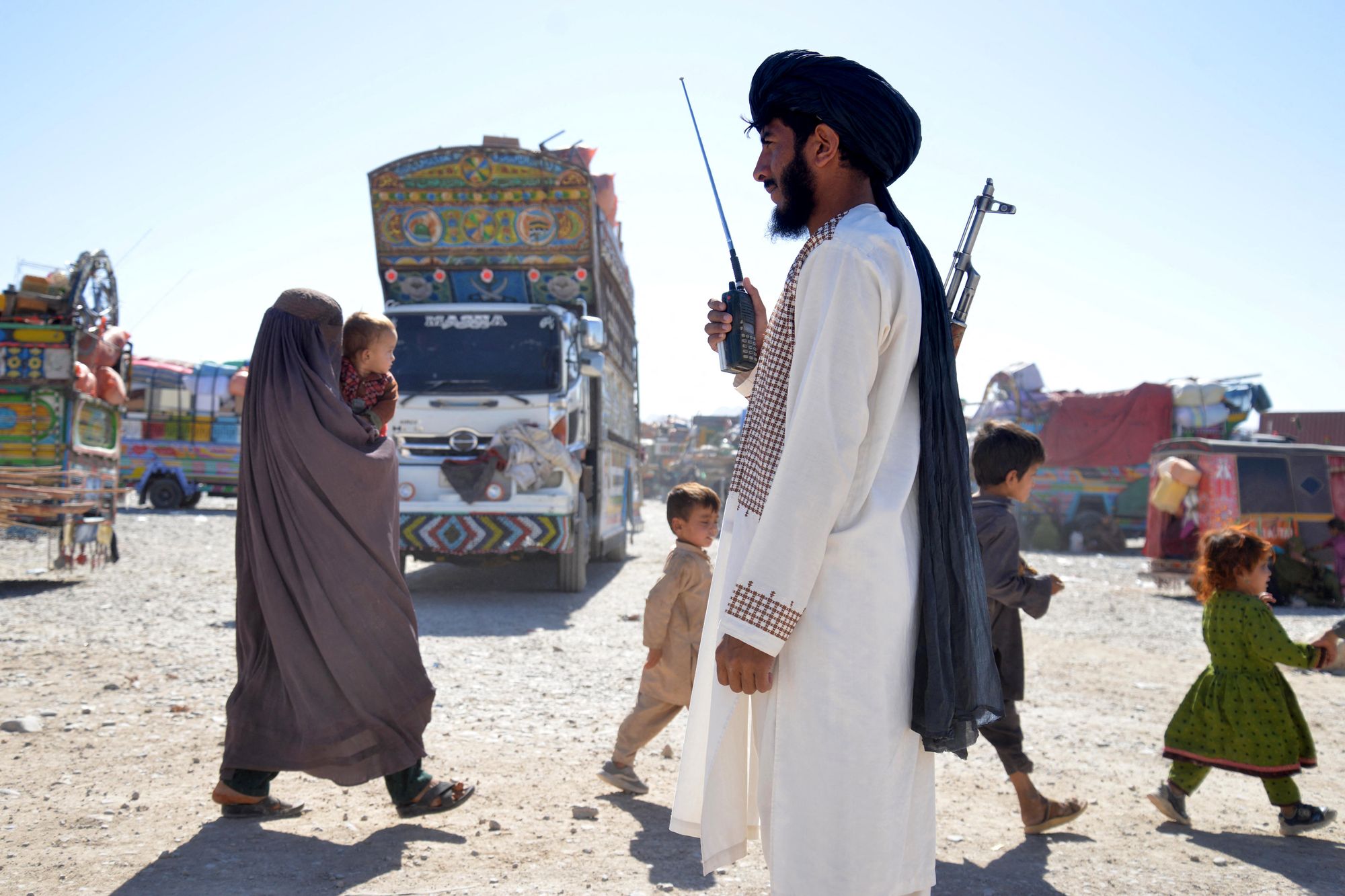Afghanistan and Pakistan traded heavy fire across their border after the Taliban said its forces launched “retaliatory” attacks on Islamabad’s multiple border posts, killing at least 58 troops and capturing 25 positions.
Pakistan said it closed its border crossings with Afghanistan on Sunday and gave a “befitting response” with gun and artillery fire to an “unprovoked attack”.
Afghanistan’s de facto Taliban rulers said the attack was in response to Pakistan’s continued violation of Afghanistan’s airspace and bombing of Kabul and a market inside its border on Thursday.
Afghanistan’s forces have captured 25 Pakistani Army posts, 58 soldiers have been killed, and 30 others wounded, said Taliban government’s chief spokesperson, Zabihullah Mujahid.
“The situation on all official borders and de facto lines of Afghanistan is under complete control, and illegal activities have been largely prevented,” Mr Mujahid told a press conference in Kabul.
There was no immediate confirmation from Pakistan about casualties.

The Taliban fighters said they have captured three Pakistani border posts after launching attacks at the Durand Line in the Bahramcha district of Pakistan, hitting almost eight provinces late Saturday night.
Pakistani security officials claimed their army destroyed several military posts of Afghanistan, and they are they were responding “with full force”.
Pakistan’s interior minister Mohsin Naqvi denounced Afghan attacks as “unprovoked” and said that their forces were responding “with a stone for every brick” and promised “befitting reply like India”.
“Firing by Afghan forces on civilian population is a blatant violation of international laws. Pakistan’s brave forces have given a prompt and effective response that no provocation will be tolerated,” he said in a post on X.
“Afghanistan is playing a game of fire and blood,” he added.
Enayatullah Khwarizmi, spokesperson for Afghanistan’s ministry of defence, said its forces carried out “successful retaliatory” attacks against Pakistani soldiers in response to Islamabad’s attack “repeated violations” and air strikes on Afghan territory.
He said the operation had ended at midnight. However, reports suggested clashes continued on the border.
“If the opposing side again violates Afghanistan’s territorial integrity, our armed forces are fully prepared to defend the nation’s borders and will deliver a strong response,” the Taliban defence ministry said.
Pakistani security officials said on Sunday that two main border crossings with Afghanistan, at Torkham and Chaman, were closed, while three smaller crossings at Kharlachi, Angoor Adda and Ghulam Khan, were also closed, in the wake of attacks.
It came as Afghanistan’s Taliban-run government last week accused Pakistan of violating its “sovereign territory” after two explosions were heard in Kabul city late on Thursday.
Pakistan’s defence ministry said Pakistan bombed a civilian market in the border province of Paktika, in Afghanistan’s south-east. Pakistan did not claim responsibility for Thursday’s attacks but blamed Afghanistan for harbouring fighters of the Pakistani Taliban.
However, the airstrikes had targeted the leader of the Tehreek-e-Taliban Pakistan (TTP) militant group in Kabul, according to a Pakistani security official. It is unclear if he survived.
The TTP has been fighting to overthrow the Islamabad government and replace it with a strict Islamic-led system of governance. It has had a close relationship with the AfghanTaliban.
The latest flare-up between rival Afghanistan and Pakistan coincided with Afghan foreign minister Amir Khan Muttaqi’s landmark week-long visit to India – his first since the Taliban’s return to power.
India remains a longstanding adversary of Islamabad, and the warming of ties between New Delhi and Kabul is likely to cause fresh tensions with Pakistan, which views closer India–Afghanistan relations as a strategic threat along its western border.
New Delhi announced plans to reopen its embassy in Kabul, which had been closed four years ago following the Taliban takeover



